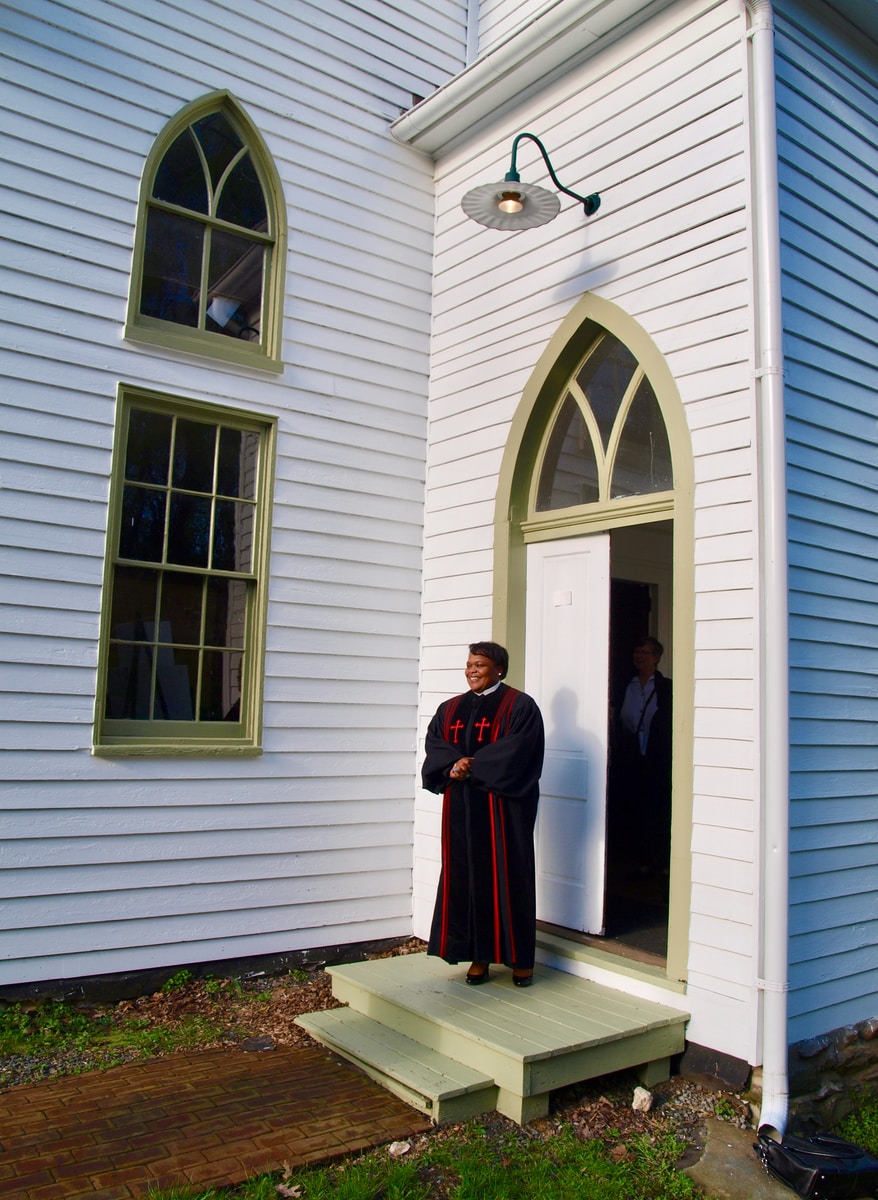So your church’s pastor is leaving. Maybe she accepted a call to another church. Or maybe he’s retiring after a decades-long tenure. Either way, your church is about to embark on a pastoral transition. This can be both an exciting and challenging time for a church. Pastoral searches commonly take a full year to complete, which can feel like a long time to go without a permanent pastor. It can be hard to say goodbye to a beloved pastor. And you may wonder how your next pastor will compare.
On the other hand, this presents a wonderful opportunity to reflect on where your ministry is and where it’s headed. With a new pastor at the helm, God may take your church in a direction you never imagined. And by taking an intentional, patient approach to the transition process, your church can not only sustain its ministry but also prepare for ministry to thrive in the next chapter.
Take time to process your pastor’s departure and say goodbye
Church members will need to process their feelings about the departing pastor. Dealing with grief is often overlooked, yet it is essential if a church is to move into the search process with a healthy mindset.
Many individuals will express their feelings to the pastor on their own. But you’ll want to find appropriate ways to say farewell to your church’s departing pastor as a congregation as well. Consider holding a reception or dinner for your church to express thanks and say goodbye to the pastor.
One method for dealing with grief after a pastor has left is to give all church members an opportunity to gather in small groups to identify specific instances when the former pastor was helpful. People can be invited to tell their favorite stories about the former pastor.
Conduct an exit interview with the pastor who is leaving
Capturing the reflections and perspective of the departing pastor on your church’s ministry can help inform your pastoral search process and prompt important conversations about the direction of your church’s ministry.
Here are some questions you could ask in a pastor exit interview:
- As our pastor, what do you see as the most significant strengths of our congregation? What are our weaknesses?
- In what ways do you believe the church has been particularly effective in mission during the past two years?
- What do you think would be the best mission strategy for the congregation in the five-year period ahead?
- What were the three major priorities in time and effort during the past two years of your ministry?
- To what degree do you believe our congregation supported you in your choice of these priorities?
- To what degree do you believe the consistory shared your understanding of your task? How did they differ?
- In what ways did the consistory review your performance? Was there any systematic review? What was helpful? What wasn’t?
- What was the length of a normal work week? In what areas did you spend time? How much?
- How adequate was the salary you received? Did increases keep pace with cost of living? How did your salary reflect the value placed on your efforts?
- If you were to stay for three more years, what changes would you want to see take place?
- Do you have any recommendations regarding the parsonage or housing arrangements?
- What conditions, if any, do you feel blocked your sense of personal and professional fulfillment during your ministry here?
Decide how you’ll cover pastoral duties in the interim
When a minister leaves, the consistory or council is typically responsible for meeting the pastoral needs of the congregation. Different churches come up with different ways to meet these needs during a pastoral transition. Here are two common approaches you can consider:
Consistorial pastoral care and pulpit supply preaching
Some consistories themselves take on responsibility for the pastoral needs of church members, such as calling, hospital, and nursing home visits. In these cases, they usually employ supply pastors to conduct the weekly worship services.
Contracting with an interim pastor or transition minister
Some churches contract with a minister to provide more extensive pastoral leadership during the search for a new pastor. These ministers are sometimes called interim pastors. They perform pastoral responsibilities as contracted with the consistory. In some instances, this means leading worship and making hospital visits. In other instances, the interim pastor assumes full responsibility for the pastoral duties of the church.
Having the same pastor each Sunday gives the congregation a strong sense of continuity. No one has to wonder, “Who’s going to be there this week?” In instances where a long, successful pastorate is concluding, the interim can provide space between the departing pastor and the new pastor. In instances where there is conflict, an interim can help a congregation move through the conflict toward the future.
Form a pastoral search team
Most churches form a pastoral search team to take on the responsibility for finding a new pastor. This allows the consistory and other established ministry teams to focus on the church’s ongoing ministry needs.
Ideal search team size: 9-15 members is usually sufficient to represent the congregation, without being too large to be effective.
Choosing pastoral search team members
This team should be representative of the congregation. People who represent various groups and points of view concerning the church’s ministry should be included. The search team should be representative of the congregation’s gender and generational diversity, as well as considering racial and ethnic diversity, appropriate to the context.
Choosing the pastoral search team chairperson
A strong chairperson to guide the search process is a key ingredient in most pastoral search teams. So choosing a good chair is important.
Helpful skills and traits for the search team chair:
- Highly organized
- Clear communication skills
- Strong group facilitation skills
- Able to be impartial
- Respected by the team
Key responsibilities for the role:
- Plan the agenda
- Run meetings
- State consensus
- Encourage team members
- Follow up quickly on group decisions
Take stock of your ministry before you hire a new pastor
A pastoral transition is a great time to take stock of your church’s current reality; in fact, this should be an essential step in your pastoral search. Before you actively seek out any pastoral candidates, take time to examine your church’s current ministry. Survey church members and examine their feedback carefully. Consider seeking input from the community around your church as well.
Taking the time for a survey process offers your church an opportunity to examine itself: to learn what it has become, what its gifts are, who its people are and what their gifts are, what the community is like and how it’s changing, and, most importantly, what your church might be doing next in ministry.
How to gather feedback or conduct a survey
Decide how you, as a pastoral search team, want to gather feedback on your church. Keep in mind that you can use more than one method to collect information. Compile a set of questions you can ask that get to the heart of your church’s ministry.
The time of congregational feedback allows you to involve many people in the process—not just the search team. The pastoral search team could conduct a survey of the entire congregation with a carefully prepared questionnaire. Various groups (consistory, staff, lay leaders, etc.) should be interviewed for their input. Congregational dinners provide an excellent setting for the search team to get input from church members.
Sharing and applying your findings
Following the survey, the pastoral search team should write a summary that describes what the survey has revealed and includes some goal statements for your congregation. The team should also share this document with potential candidates for the church. They will want to know the results of the congregational feedback and the goals the church has for the future.
Seek the pastor you need now, not the one you just had
Informed by the process of gathering congregational feedback, draft a job description for the person your church needs as a pastor to move forward. Think about what you want to carry with you about your ministry now and what you hope to see adapt or change. This position should reflect those changes. You can use your previous pastor’s job description as a starting point, but there’s a good chance that what your church needs in a pastor has changed since it was written. So you should expect to make revisions before you post the position anywhere.
Once you have a new job description and the desired qualifications outlined, you’re ready to start advertising. Post the position on job boards and social media. Your denomination, if your church has one, may have a job board where you can advertise on its website. You can also check with seminaries to see if they have a place you can post the position.
Tips for evaluating potential pastors’ applications
Try not to compare candidates with each other too much before you’ve met them. Remember that a pastoral search team is looking for people who generally meet the needs of the church, not the best pastor among a group of pastors.
It can be helpful to sort applicants into three categories: “front-burner” candidates that the search team will definitely pursue; “back-burner” candidates, which the team may pursue later; and candidates that are “off the burner” and will not be considered further.
It’s important to keep new applications coming in and be open to multiple qualified candidates at this stage. Many pastoral search teams become invested in a candidate or two while early in the search process. Often, those candidates are not ultimately the right match for the church, and the search team must start over.
How to make the most of the pastoral interview process
To gather as much helpful information as possible in an interview, it’s best to prepare a list of questions you want to be sure to ask candidates. You don’t need to go through these in exactly the order given. But you should keep track of which questions still need to be answered and work them into the conversation.
Let the candidate do the talking
Interviews are often ineffective for one of the following reasons:
- Search team members do too much of the talking
- Search teams are too quick to make judgments
- The way questions are asked “telegraphs” which response will be received most favorably.
- The interview gets bogged down in trivial questions and leaves more important matters unexplored.
To avoid these pitfalls, the team should commit itself to permitting the candidate to do 85 percent of the talking. If you’d like more clarity about a candidate’s answer to a question, simply request that the candidate “say a little more about that” or expand upon something they’ve already said.
Keep in mind your church’s needs and vision
Compare candidates with the requirements your search team has identified for your next pastor. Some people may be great pastors but not the right fit for your church. So it’s important to be clear about the type of pastor you need and tailor your evaluation accordingly.
One of the best questions for pastoral search team members to ask themselves after an interview is over is, “Would this minister fit here?” It may not be possible to explain why you respond one way or another. Human judgments are highly complex. But when your overall impressions or feelings are based on sufficient information, it is best to trust them.
Save watching a potential pastor lead worship for after an interview
In the past, observing a candidate leading worship was often one of the first steps in a pastoral search. Experience has shown that this is not the most helpful first step for several reasons.
First, when several pastors preach at the church, church members begin to choose favorite candidates. Not everyone likes the same candidate, and this leads to conflict.
Second, the pastoral search team needs to find the pastor who has the gifts and skills to lead the church in the years ahead. And that requires considering more than just worship leadership. Starting with an interview permits the team to explore all areas of a candidate’s gifts.
If your pastoral search team hears a candidate preach before an interview, you’ll be deciding whether you move forward with that candidate based on preaching and worship ability alone. Administration, education, counseling, and other areas of pastoral care are also very important in the life of many churches. When you evaluate candidates on their preaching alone, you may overlook a person who has strong leadership skills in the areas your church needs most.
Third, the search team needs to have adequate time to reflect on a candidate’s ability. Hearing someone lead worship tends to push the process along too quickly.
Seek input from the congregation before you extend a call
Invite your final candidate to lead worship and meet the congregation on a Sunday. After the congregation has had a chance to see the candidate in action, hold a congregational meeting to get their perspective.
A simple congregational yes or no vote on extending a call to the candidate can give you a sense of the congregation’s will. You want to see a “yes” vote from at least two-thirds of the members present. A simple majority could still indicate too much division on a pastoral candidate.
Plan for welcoming and adjusting to your new pastor as part of the process
The church has a new minister. The installation service is complete. The supervisor is gone. It seems like the process is completed. But, in reality, the pastor and the congregation are just beginning a new phase of the process: the pastoral start-up. Both churches and pastors often overlook the importance of the pastoral start-up phase.
Adjusting to a new pastor
Once the pastor is installed, the real work begins. The pastor starts to minister with the congregation. The congregation waits to see what’s going to happen with this pastor.
Before long, a few irritants may arise. Maybe your new pastor isn’t doing certain things the way people expected; maybe church members aren’t doing some of the tasks the pastor thought they were going to do.
Some adjustment of expectations is bound to take place in any relationship. But when irritants arise between a pastor and a church, it’s important to handle them as soon as possible. One way to do this is to participate in a pastoral start-up workshop. These workshops can provide an opportunity to state clearly and agree to goals for the congregation and the expectations the pastor and church members have of each other. Work responsibilities for all parties should be carefully listed, and evaluation should be built in.
Helping the pastor’s family transition
Not every pastor has a spouse or a family living with them, but for those that do, moving can be a difficult experience for both the pastor and the pastor’s family. The pastor’s family may miss their previous church, friends, and neighbors. Kids may be adjusting to a new school. Some of their favorite activities, foods, and stores may not be available in your area. At the same time, your pastor’s family will also be forming new friendships, exploring a new area, and developing a relationship with your church.
It is important for your church’s members to be particularly alert to the feelings of the pastor’s family during this pastoral transition period. The pastor’s spouse can be especially susceptible to loneliness. Understanding, care, and love from members of the congregation help make this transition easier.
Yes, pastoral transitions can be difficult. But with wisdom, prayer, and the commitment of the pastoral search team and the congregation as a whole, your church will be well on its way to a meaningful relationship with a new pastor.
The advice in this article comes from the Reformed Church in America Pastoral Search Handbook, compiled and edited by Molly Towne, Grace Claus, and Jennifer Knott.
Grace Ruiter co-founded Faithward and oversaw its growth from a small blog to a ministry that reaches 100,000-200,000+ people each month. She has been asking too many questions ever since she started talking, and she has no plans of stopping now. Although her curiosity has challenged her faith at times, it's also how her relationship with God has grown to where it is today. You can get in touch with Grace at graceruiterwrites@gmail.com.




